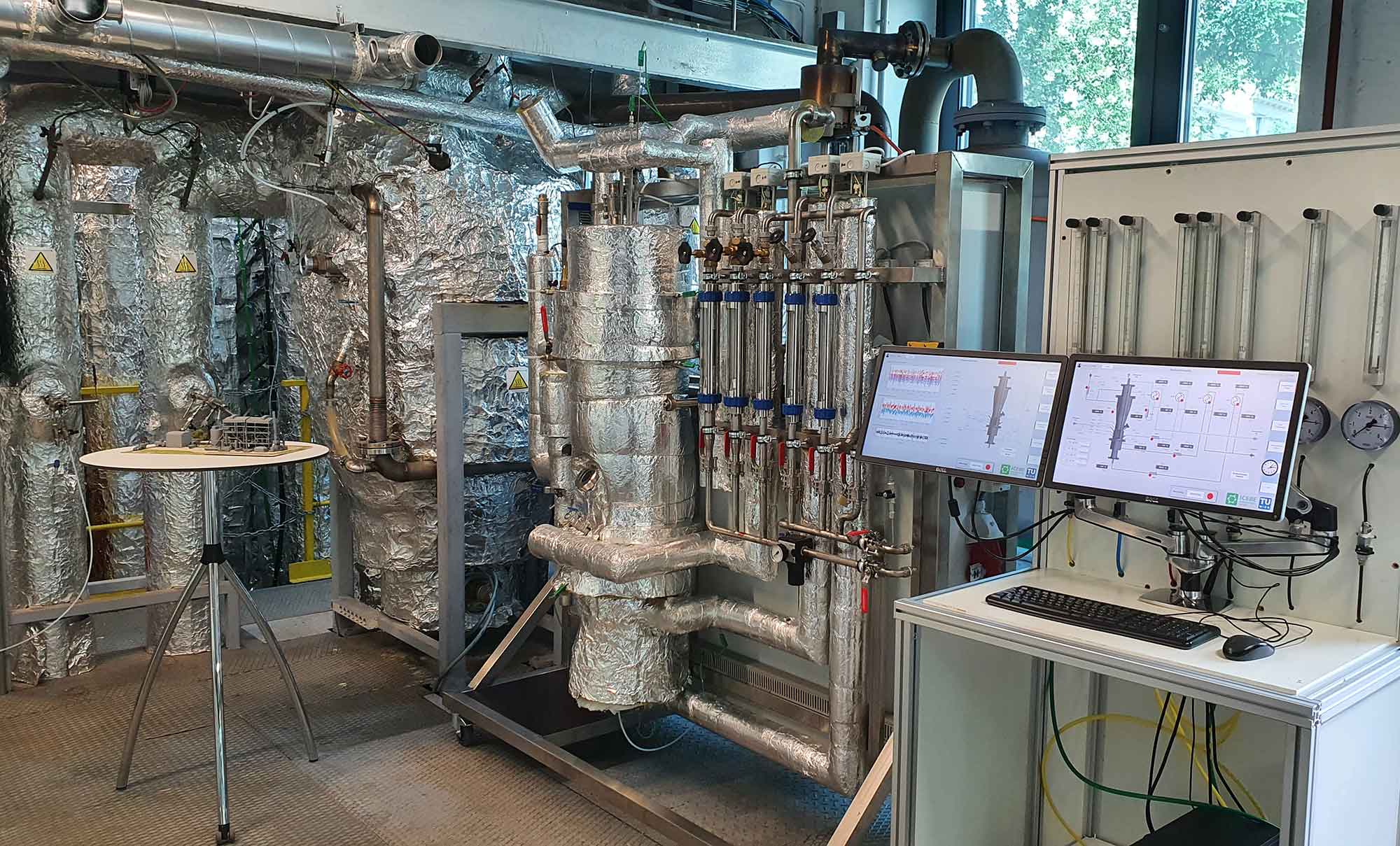The ReGas4Industry project1 investigated a method for generating high-quality synthetic secondary energy carriers (such as synthetic natural gas) from biogenic residues and waste materials. These synthetic gases can be used as a replacement of fossil fuels in industry and enable significant amounts of CO2 to be saved. Compared to the direct generation of electricity and heat from biogenic residual material, gas generation has the advantage of providing an energy source that can be stored. Several years ago, the Institute of Chemical, Environmental and Bioscience Engineering at TU Wien developed a gasification process using two interconnected fluidised beds. Although this innovative and carbon-neutral technology was originally developed to produce gas from wood chips, cheap biogenic residues and waste products are now being used instead, as wood chips are expensive. As well as fitting the concept of the sustainable circular economy, this approach also provides an opportunity to make the innovative method more cost-effective.
Developing and Testing on a pilot scale
The project focused on producing renewable natural gas (synthetic natural gas, or SNG) and Hythane (a blend of methane and hydrogen) but also analysed processes for making liquid Fischer-Tropsch (FT) products. The researchers started by investigating potential alternative fuels (biogenic residues and waste products) and rating them in terms of quantities available, prices, compositions and suitability for the new method. The innovative process features the latest-generation dual fluidised bed (DFB) gas generation with subsequent gas cleaning and catalytic fluidised bed methane synthesis or FT synthesis. The entire process chain was set up and operated on a pilot scale in the Technikum at TU Wien. A 100 kW DFB gasifier was used to run extensive gas production experiments employing various fuels and operating conditions and different bed materials and gasification agents. At the heart of the various synthesis routes is a fluidised-bed reactor for the single-stage synthesis of methane. Gas cleaning equipment such as a biodiesel scrubber and a three-stage fixed-bed adsorber were also developed and built as part of the project. This enabled the operation of the entire process chain from residual material to raw-SNG. Two extensive testing rounds successfully demonstrated the “live” production of raw-SNG in combination with the 100 kW DFB gasifier.
Two highly promising biogenic residues: bark and sewage sludge
The pilot plant investigations at TU Wien show that biogenic residues such as bark, lignin, sewage sludge and residues from fermentation processes can technically be used to produce gas. A very high product gas quality can be achieved with bark, a classic by-product in the woodworking industry. Bark offers the highest potential as a fuel for producing renewable natural gas, while sewage sludge is also suitable for gas generation and SNG production despite its ash content and high percentage of impurities. As sewage sludge costs money to dispose of and thus has a negative price, it offers an economic advantage compared to both SNG production from high-quality biomass and fossil natural gas. As the existing potential for harnessing sewage sludge in Austria is limited, however, its exploitation on an industrial scale would only make sense in main conurbations. Other biogenic residues that could also be used to produce gas are fermentation residues from biogas plants and by-products of the paper and pulp industry.
The findings from the pilot phase and extensive literature research were used to formulate concepts for applying the method on an industrial scale and carry out techno-economic and environmental assessments.
https://energieforschung.at/projekt/gase-aus-regenerativen-reststoffquellen-fuer-die-industrie/
1 Project partners: TU Wien, Institute of Chemical, Environmental and Bioscience Engineering (project management), SMS group Process Technologies GmbH, Energy & Chemical Engineering GmbH
